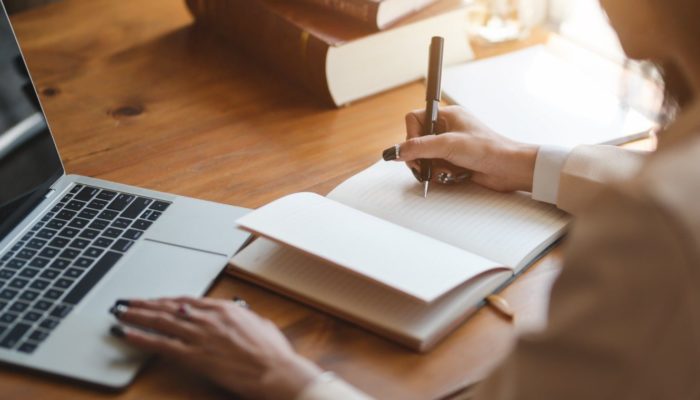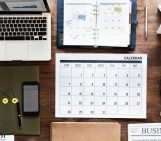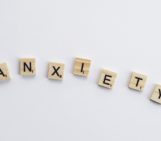
By now more and more countries in Europe are hit by the Corona-virus, leading to increasingly strict measures and closures of many public places. We are being asked or obliged to work from home, to limit social contact by staying away from bars, restaurants, sports clubs, museums, theatres and all other places where gatherings of people take place. Simultaneously, we continue to receive worrying media reports, from local news channels about the number of contaminations, to global news about closing borders, strained Italian hospitals and crashing economies. This all is mixed in with potential serious health concerns for you and your family. With all these things to be worried about, it is not a surprise that people with anxiety issues feel challenged to deal with such a situation. Or, perhaps you have never felt such niggling worry before, but with the bombardment of negative thoughts, you do not know how to handle it. Please bear in mind that you are not alone. If you are looking for some extra tools to get through the challenging weeks, or months to come, this blog is for you. We want to share some of our own practical tips on how to focus on your mental health, in times when we are no longer in control. This situation will be a marathon and not a sprint, so it is good to take your own personal pain points into account and create a strategy for self-management.
Note that mental health issues are serious and where necessary should be addressed with the help of professionals. Remember, acknowledging that things are not going well and seeking help is a sign of strength, and never a source of shame! We do not claim that the advice in this blog post is comprehensive. It should be seen as a complement, not an alternative, to seeking professional help.
Check-in with yourself
First of all: be aware of how you feel, and allow yourself to feel exactly how you feel. You are not the only one who struggles with this situation, many of us feel the extra stress. One thing to keep in mind is that you will not be your efficient self and energy will be lost. If you live alone, the lack of social contacts can be tough. If you live with flatmates, there might be more social contacts than you would hope for. If you live with small children, there is the additional responsibility of keeping them occupied and healthy. Every living situation brings its own challenges. Despite that, as an academic, the switch from office to home office supposedly should be easy; when worries like these are sitting in the back of your mind, energy is lost in simply keeping your mental balance. If this is the case for you, then do not make it worse by thinking you are failing, or a loser for struggling. And make sure to take this energy loss into account when planning your activities and when managing your self-expectations. Be kind to yourself.
Work out a new daily routine
Second, do not lose routine completely. Of course, letting go of the fully rigid routine is OK, but try to get up and get dressed at approximately your usual hours, and incorporate designated breaks in your working day. Start and end your day with some exercise instead of your commute, make a to-do list to keep track of what you are working on, and divide your day into time slots – make sure to include an end-time! If independently keeping a routine is difficult for you, then ask some colleagues or friends for short daily calls on WhatsApp, Skype, Facetime, whichever is your personal favourite. These online check-ins can be work-related, but they can also be virtual coffee breaks, just to have some social interaction. We suggest trying to talk about non-Corona related items too. Another neat trick to improve how you feel is to incorporate small tasks in your daily routine that give a sense of accomplishment, such as making your bed every day or never let dirty dishes stand after dinner.
Avoid a media bombardment
Third, know the triggers that induce your anxiety, which are in the current situation probably related to the many news items. If the media makes you anxious, make sure to limit your news intake, and be mindful of sources (see also the advice from the BBC). Switch off Twitter, Facebook and WhatsApp notifications and/or specific hashtags as needed. The news updates are not that quick that it is necessary you keep yourself constantly updated. Designate specific time-slots in the day in which you check what is happening. Make sure that you place your trust in official government channels, especially when it concerns health-related topics. The evolution of this situation is completely out of your control – the only thing you can control is your own behaviour, so how to spend your time and how to respond to all the information that is thrown at you.
Get creative with leisure activities
Fourth, there are possibilities for spending leisure time that do not require other locations. If you have or can create the space, you can do yoga or Pilates exercises, or perhaps you can use your newly acquired 5 kg pasta bags, filled water bottles, or your pet as improvised weights for a weightlifting session. YouTube has various classes online. Rumour has it that even in those countries with full quarantine, 1 hour walks are still allowed. There are indications that walking and running release chemicals in your brain which work in a similar way to anti-depressants. So, give yourself a mental kick, and put on your shoes to go outside for a brisk walk. And remember – the Norwegians say there is no such thing as bad weather, only bad clothing. So, you can do this every day! Furthermore, this might also be the time to start that cool new hobby you never took the time for. Learn how to draw, read that book that you got three Christmases ago, or play an (online computer) game. Maybe you can write a postcard or a letter to your grandparents? There are definitely more indoor activities than bingewatching on Netflix! Time to get creative.
Make the most of your working hours
Last, as an academic we have more freedom than most. Discuss with your supervisor how to make the most of this time at home – especially if your usual daily life includes lab- or fieldwork. Create a comfortable home office. Without the distractions of the next experiment, your ever-curious students or your fun colleagues, this is a good time to start writing – but start with the easy bits! As an example, we, your bloggers, usually start our papers with the methodology, the geological setting, and/or making the figures. Alternatively, you can do a literature study, and write useful 1-2 sentence summaries with their reference in an empty document: ready for the taking when you write your introduction or discussion section. Other options are organizing data, to get them ready for a repository, or working out ideas for proposals, both big and small – for you or for your BSc, MSc or PhD students. Or hey – maybe you have wanted to write a blog post for us! Get in touch with our editor-in-chief with your ideas, and one of the blog editors will help you with your science communication efforts.
To conclude: manage yourself with kindness and compassion, and where necessary with some discipline (to avoid getting stuck in the Netflix binge…). This is the best way to stay as healthy as possible, both physically and mentally. Follow the general government guidelines on hygiene and social distancing, make healthy meals, and exercise in any way you can. Keep in touch with your family, friends and colleagues via digital means. This situation will not be forever! In the grand scheme of things, these will not be the best weeks productivity-wise, but that doesn’t mean your life will be ruined. This, too, shall pass. Hang in there!
By Anne Pluymakers
Written with help and revisions from Elenora van Rijsingen & Hannah Davies




